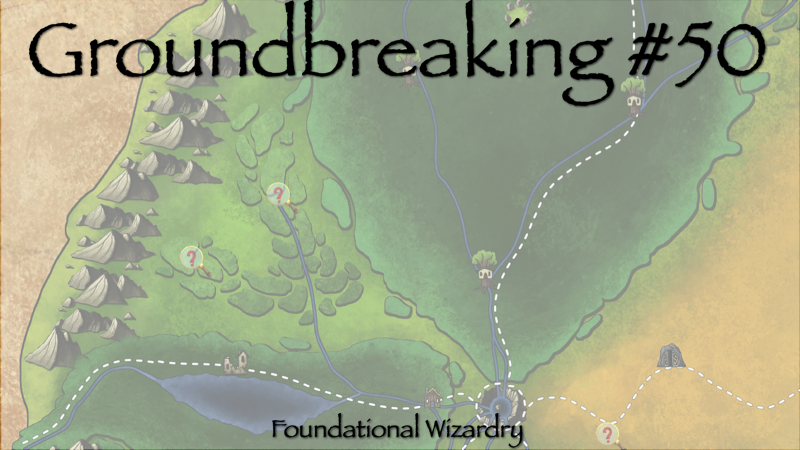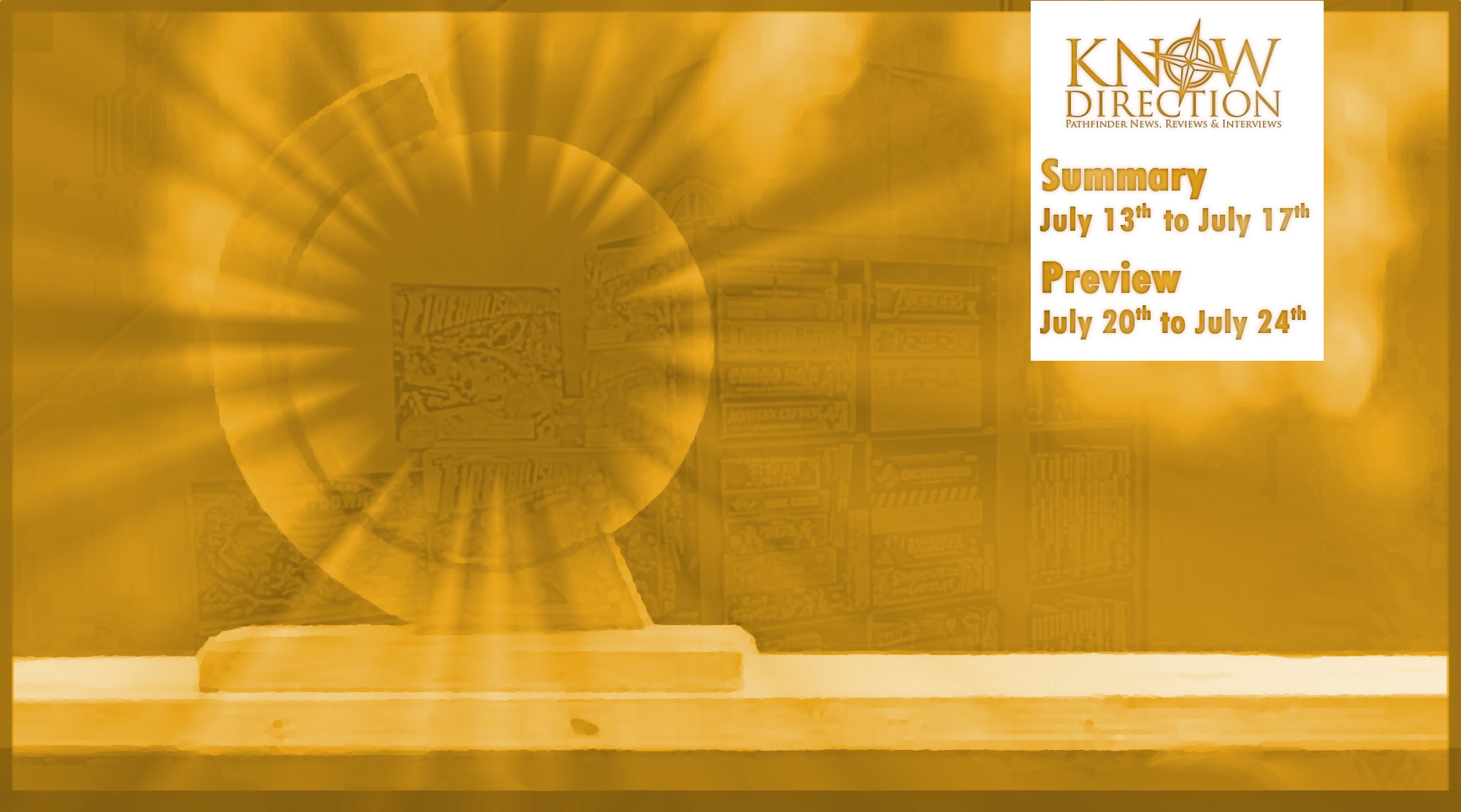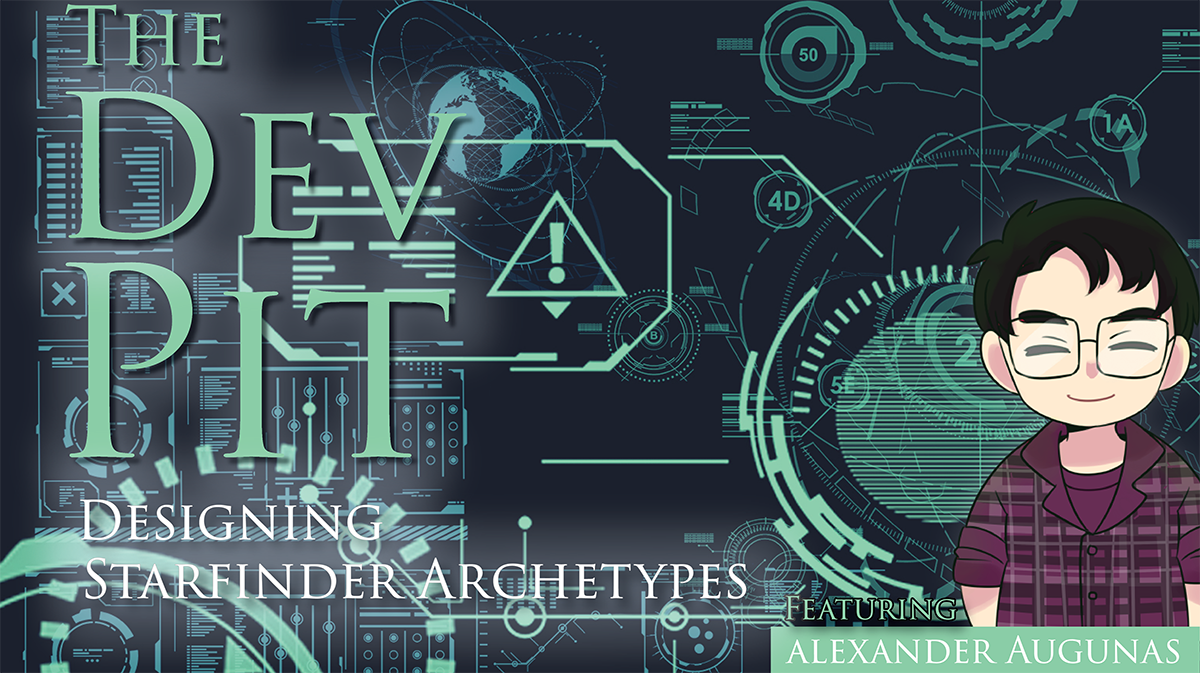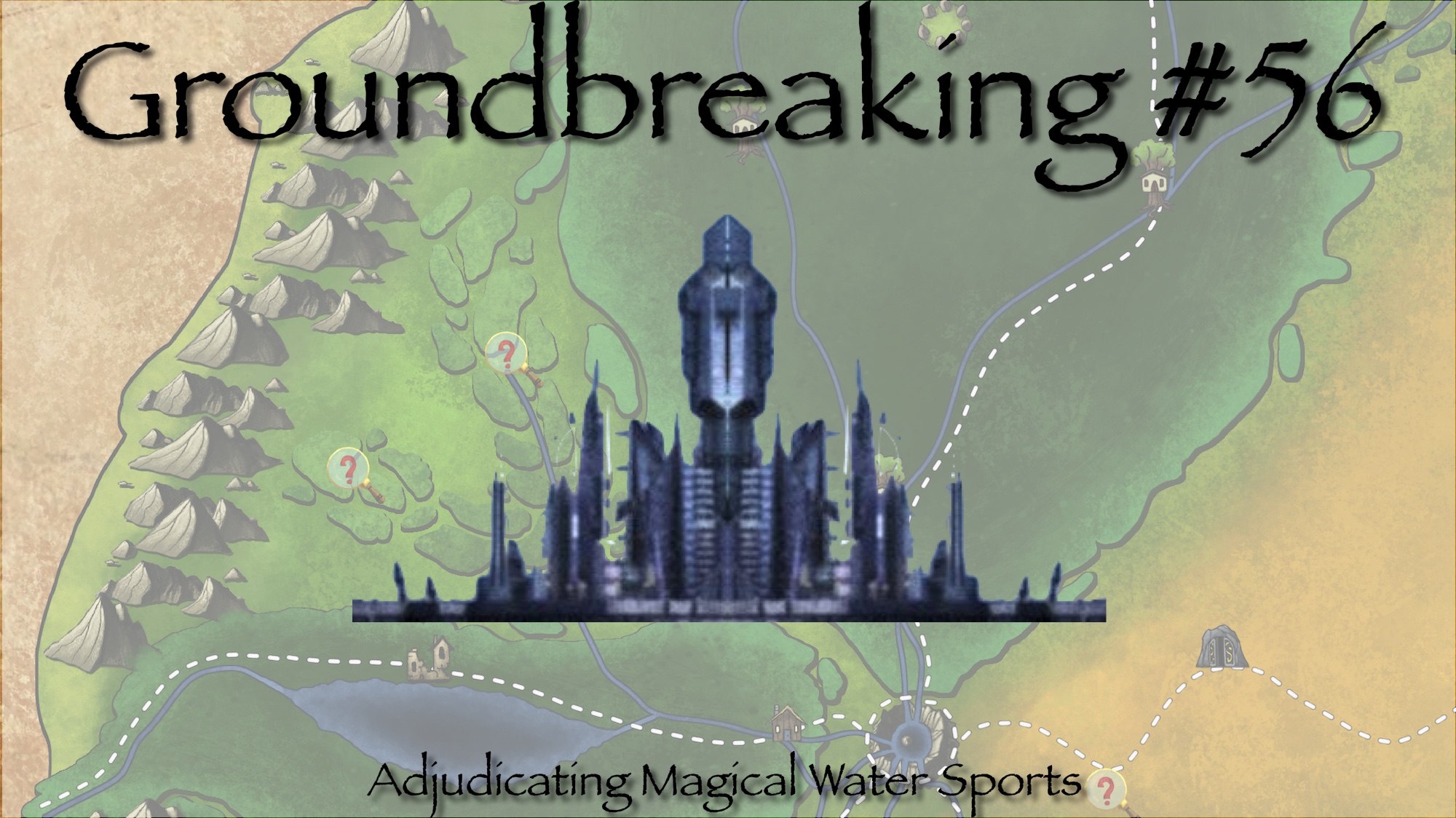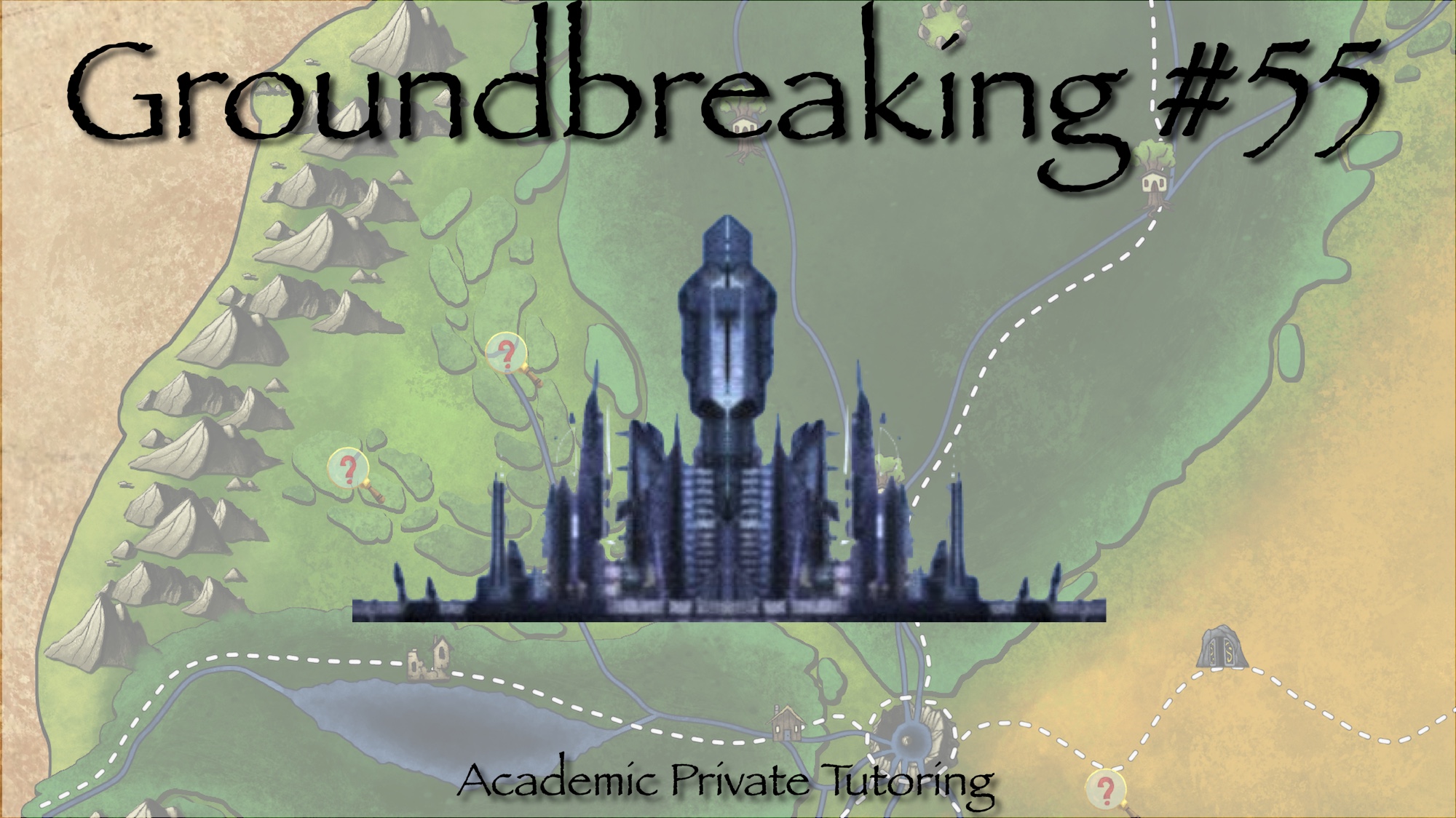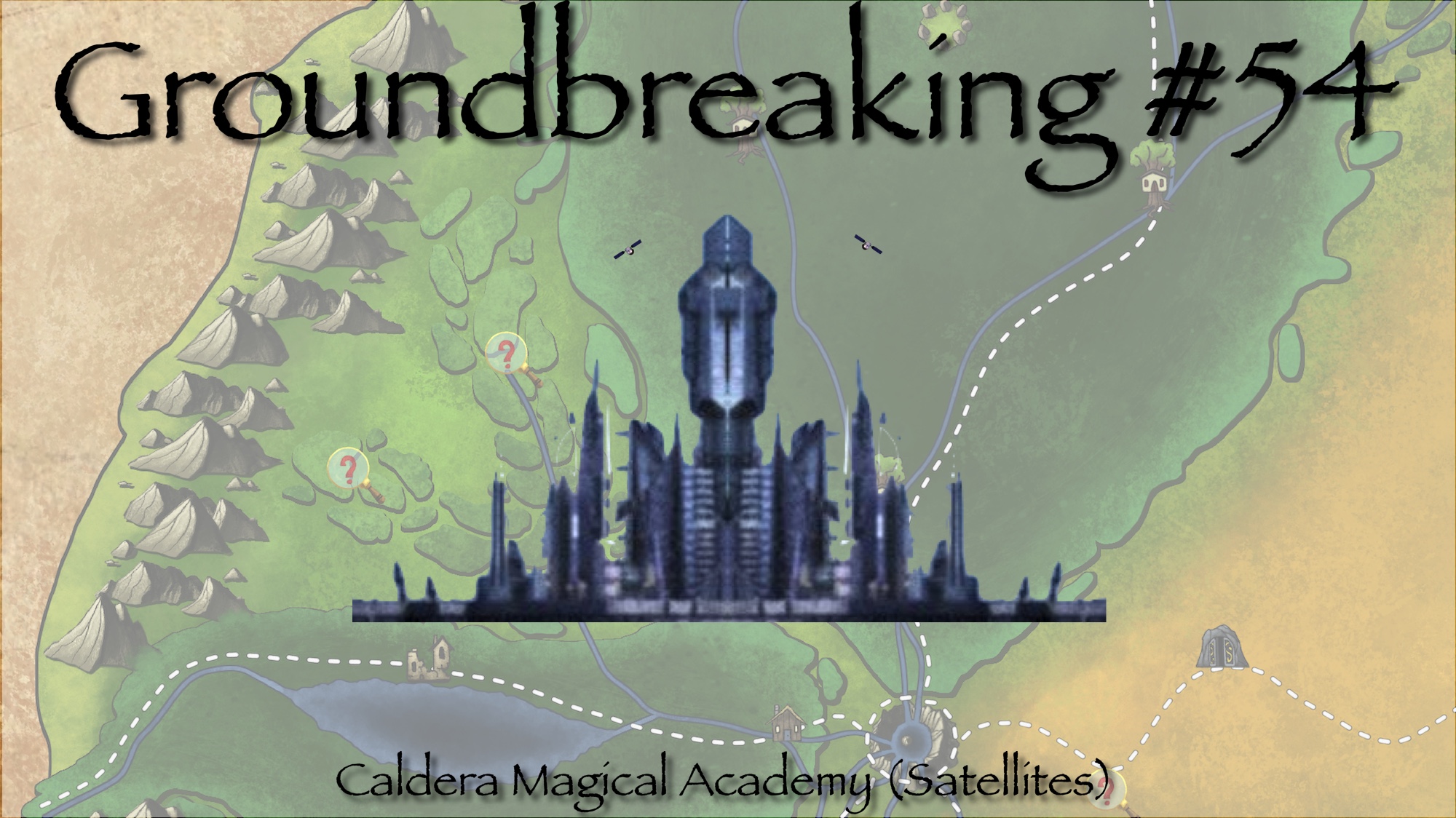“No, no, no, no … that wand will not do. You have an affinity to air, get something a little lighter.” suggests the wizened gnome behind the counter. “But I want to burn things during my finale, not knock them over!” complains the student Dolf, much too inexperienced and impulsive to even know to ask why. After taking a second to size up the young man, the gnome decides to do the headmaster a favor. “In that case, you are going to want one of these fire staves. Not only are they preconditioned for fire spells, but you can alter your spells simply by changing the volume with which you use the command word ‘forzare’ so you only need the one command word for all your fire spells!” the gnome finishes a genuine smile on his face. Seeing the excitement on the old gnome, the boy’s imagination takes over as he grabs the staff and holds it in a few poses whispering ‘forzare’ as it blasting a foe.
Hello, and welcome back to Groundbreaking. I had originally planned to write up some rules for expanding wands and their usage, but my kids decided that they had other plans for me all weekend, so the time I needed to spend rereading spells, wands, and other stuff slipped away. As I try to keep the process behind the world building a part of this blog, let’s dive into the thoughts I am having in regards to expanding magic via wands, staves, and more.
Throughout my weekend, I had numerous chunks of downtime where I wasn’t able to do much but sit (or lie) and think. I spent a lot of that time thinking about what I would like to see done with wands and staves in 2e, and in addition to alternate wands (or alternate wand usage) I kept coming back to treating them kind of like fighting styles … sometimes like champion blade allies, sometimes like druid orders, and other times like monk stances. The more I thought about it, the more all of this reminded me of some world building I did back in the DnD 3rd edition days. Back then, I wanted to separate the sorcerer and wizard in a more thematic way than simply studied vs. innate. I was riding the high of a sorcerer class, but reeling from the fact that it was still fundamentally the same thing: arcane caster + familiar. There was a supplement that I latched on to (but can’t recall anymore) that replaced the familiar with a staff that leveled up (a precursor to Pathfinder’s arcane bond). I was in the middle of some world building at the time, preparing for a campaign, and was creating some NPC mentors for the player characters in the game. I wanted to showcase the difference between a familiar and a staff, and I wanted all the NPCs to know each other by reputation, and that was the spark I needed.
“Look at this staff!” beams Dolf, as he shows of his new purchase to his pals. He turns it on one of them and shouts ‘FORZARE’ as he channels his meager talent through the weapon. Everybody jumps back at the unexpectedly large flame, surprised that Dolf had been able to command such strength. Before they can praise him, they see the headmistress approaching from behind him and scatter. He turns nonchalantly, twirling his new staff clumsily, and smiles like a cat with a mouse. “And you said I wouldn’t amount to much, that I would fail, that my parents were wasting their money on me!” he chides her. “Well, their money has just ensured that I am powerful enough to pass the finals!” he finishes, laughing without a clue. “Forzare, forzare … where have I heard that before …” she muses as she does her best to not roll her eyes at Dolf’s clueless admission of cheating. “Duh, ‘forza’ is ignan for furnace and ‘zare’ is infernal for force.” Dolf rolls his eyes. “How *did* you become a wizard!?” he mocks.
Wizardry is all about the study of magic and its applications. It takes years to master it. While there are legends and tropes galore about isolated wizards in towers, there are also stories about wizard academies that include multiple teachers to cover the various disciplines. Sorcerers (as well as bards and witches) are likely consulted in the educated quest to devise a spell, complete a ritual, figure out a sigil, or simply try something different. That means you need to network, which means you need to know who else is out there, what they can do, and how good they are at it. Additionally, wizards all have an arcane mark to distinguish them by, and schools always have mascots, so I wanted to make sure that part of the identification process could pinpoint where one was trained. At the time, I felt staves were more wizardly than familiars, likely due to Gandalf, and I saw sorcerers more akin to witches, so I made the decision that in my homebrew only sorcerers could have familiars and only wizards could have staves. From there, I broke it down such that identifying required various Knowledge skills, depending on your affiliation and the affiliation of the person you were trying to identify. Knowledge of animals helped in identifying possible mentors of sorcerers while knowing various carving patterns and wood choices improved identification of wizards.
So, how does that inform my decisions for Groundbreaking? Huh? Shout out your answer! Well, you two are both wrong, but you, in the back, you are pretty close! First, we need to figure out who teaches magic in Marathis’ Cradle. Also, I want to address what it means to teach and learn magic. In the older editions, this conversation was strictly about arcane casters, primarily wizards, but not any more. Bards spend a lot of time studying, cloistered clerics can as well, arcane sorcerers can use spellbooks, and witch familiars *are* spellbooks. If you get crafty and hang with an alchemist, I am sure you will study together … and let’s not forget how easy it is to mix and match all of this via archetypes. Pure source of potential aside, methods of learning have always been subjective … working well for some but poorly for others. Who’s to say a blaster arcane sorcerer that can’t read or write won’t learn to maximize her potential by learning the physics behind the elements she is pushing around? Why shouldn’t a purely sigil based conjurer meditate with clerics to get in touch with his feelings to better communicate with the entities he summons?
I believe that a society with magic would produce casters that either benefit the community as it is, or attempt to hold that community to ideals that it espouses (either good or bad). To that end, we are going to look at the types of communities found around Marathis’ Cradle to put together a list of potential educational systems. I want to make sure I don’t step on any lore that I might have previously created, so I am going to spend the next two weeks rereading the blog and cataloguing any references that will be pertinent to this discussion. It is late, and I need to get to bed, so I won’t be doing any of that now … but with that in mind, here are a couple core concepts that I expect to discuss as we move forward with this topic.
“What do you mean I failed? So what if I burned a couple books!? I don’t care if I couldn’t create fire for as long as the others students, the fire I did create was bigger and better than everybody’s combined! Do you know who my parents are!? I’ll know the dean … personally!” Dolf continued ranting well after the headmistress left. She now sees why he had to fail, but his family could make a lot of trouble for the school … perhaps she should make sure.
Regions Within each region is a distinct subset of our society that will inform magic users based on how they interact with the world around them and how they interact with each other. We have gone around the Cradle numerous times discussing various topics already, but this time we are going to come up with a couple generalizations related to magic usage and then create a place where each type of caster can go and study their craft. I am going to spitball some ideas below to give us a bit of direction (and remind me to do my research) for next time.
Caldera As the hub, it is the most metropolitan, and thus likely to involve more social aspects than any other educational systems in the region. Located on/around the water it will have some unique water related aspects. Wands are more likely to be used for “proper duels” as a staff would be seen as cumbersome and “primitive”.
North While the dense forest is most likely associated with the druids and rangers, there are cities that are governed by other groups of people. Instead of a stereotypical elven city (which I believe I haven’t mentioned elves much at all) I think it would be fun to have some duality with a proper city neighboring a commune of sorts, built around competing wizardly schools that are polar opposites in regards to nature vs. “progress”. I would expect more intricate and higher quality wands and staves to originate from here as they compete for and with natural beauty. I envision more nature based theming of spells, not sure about wand or staff combat use yet.
East The desert. Well, I think I should finally think about a settlement or two that aren’t underground. Although, I will certainly have some words to say on dwarven rune magic … and I already mentioned the Gnomish Dream Caverns and their illusionist college (I think). I am thinking that I should have a school that teaches magic related to the astrology and a school that teaches magic related to astronomy. Perhaps “school” is a strong word here. A cabal of astrologer witches could suffice. Perhaps just one old wizard with the world’s biggest telescope takes on apprentices every year? Unsure about wands or staves here …
South The farmland is going to be very community based, but in a completely different way than the big city. Travel magic and transmutation magic are going to probably be specialities far and beyond things like enchantment or illusion would be in a metropolis. Here, you are more likely to be trained by the local hedge mage or witch, or perhaps a traveling bard, than you are to attend a proper academy. I don’t see a lot of wands in a place like this, as a staff is extremely practical as a tool (comparatively). Honestly, I see this as being the source of more familiars than anywhere else. Minstrels likely abound as well.
West The secretive nature of the swamps, mists, and hidden valleys pretty much screams for witches to be the staple in this region. Perhaps I need to wait until I get my hands on the new APG before I finish my thoughts on how I think a predominately witch based magical academy would operate, and what sorts of combatants they would produce …
“It has been some time, hasn’t it?” the headmistress asked, standing in the doorway to the shop. “Nostell …” the gnome replied, letting her name linger in the air as he continued stocking shelves out of sight, “… it has been far too long, has it not?” Nostell sighs as she steps out of the light of the sun, refocusing her eyes in the shadows within. “Why him? Are you certain?” she asks, calmly, be with a seriousness that hints as concern. “Yes” replies the gnome, simply. “He cannot be allowed to graduate. I have seen to it. Do not interfere.” he commands the headmistress as he continues sorting tomes, still out of sight. She steps passed a bookshelf, then another, looking for the gnome, but not wanting to find him. “But, the last time… the boy never …” she begins, but is cutoff. “You asked for my consult on your students, you have paid my fee, and I have rendered my verdict.” he snaps a tome closed, and the sound echoes heavily … “Now see yourself out … I must prepare to meet potential apprentices for the coming year …”
If you made it this far, I hope you enjoy casters as much as I do, because we are going to have some fun with them! If you don’t, well, thank you are reading and being a good sport! As always, please continue to join us at our Discord server https://discord.gg/Rt79BAj.

